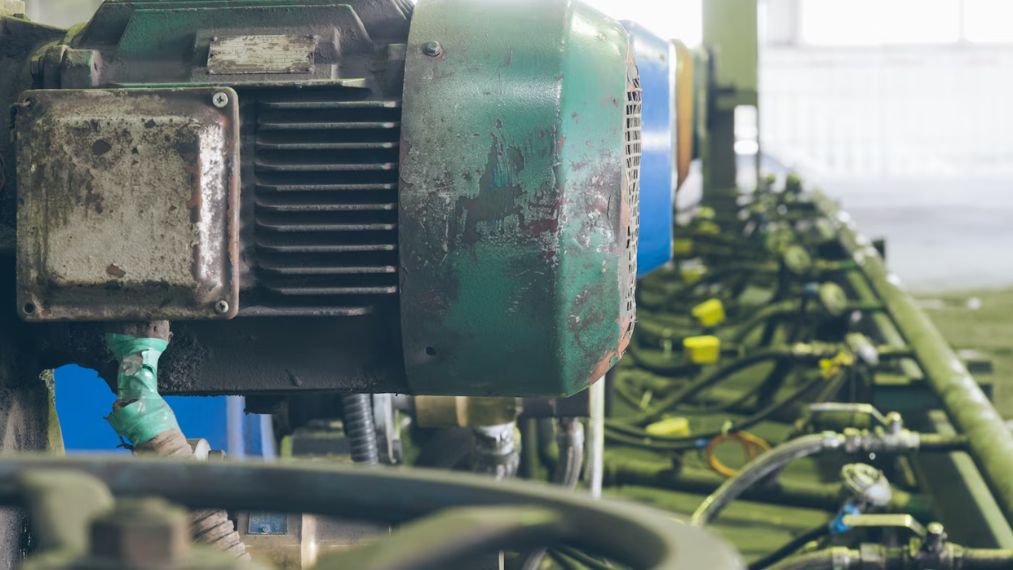
Ever wondered why some hydraulic pumps seem to keep running for years without a hiccup, while others give up way too soon? Nine times out of ten, the difference comes down to oil quality. It’s not just about having oil in the system; it’s about having the right oil, in the right condition, and keeping it that way.
What Makes Oil “High Quality”?
Not all hydraulic oils are created equal, especially when it comes to protecting your hydraulic pump. And it’s not just the base oil that matters; it’s the additives, the cleanliness, and how well it holds up under pressure (literally). Here’s what you want to see in a good quality hydraulic oil:
- Right viscosity – If it’s too thin, it won’t protect. Too thick, and it strains the system.
- Thermal stability – Oil needs to keep its cool under high temps.
- Oxidation resistance – Prevents sludge, varnish and other nasty build-ups.
- Anti-wear properties – Protects metal surfaces and reduces friction.
- Water separation – Helps keep moisture out of the system where it doesn’t belong.
Without these properties, even the best pump won’t last long.
How Poor Oil Quality Damages Hydraulic Pumps
This isn’t a slow fade. Poor oil quality can lead to damage in multiple ways, often at the same time. Here’s what happens:
1. Increased Friction and Wear
Hydraulic systems rely on a thin layer of oil to keep metal parts from grinding together. If the oil breaks down, that protection disappears. You end up with scoring, pitting, and eventually full-blown component failure.
2. Heat Buildup
Low-grade or contaminated oil doesn’t flow as well, and it doesn’t cool efficiently either. The system starts running hotter. High heat accelerates oil breakdown, which creates even more heat—a vicious cycle that burns through pumps quickly.
3. Contamination Damage
Particles in the oil—from dirt, wear debris, or moisture—are brutal on hydraulic systems. They scratch surfaces, clog small passageways, and cause uneven wear. Even tiny bits of contamination can lead to massive issues.
4. Sludge and Varnish Formation
When oil oxidises or reacts with contaminants, it creates sludge and varnish. These residues stick to internal surfaces, restrict flow, and increase pressure. The pump has to work harder, which shortens its lifespan.
5. Corrosion
If water gets into the oil and isn’t dealt with quickly, you’ve got corrosion risk. Over time, this eats away at internal components, especially if the oil lacks strong rust inhibitors.
Signs Your Hydraulic Oil Is Hurting the Pump
You don’t need to wait for a full breakdown to catch oil-related problems. There are plenty of warning signs that something’s not right:
- Sluggish or jerky system movements
- Unusual noises from the pump
- Overheating or frequent shutdowns
- Dark, milky, or burnt-smelling oil
- Drop in system efficiency
If any of these show up, it’s time to check the oil first.
How to Protect Your Pump With Better Oil Practices
It’s not enough to just choose a decent oil and forget about it. The way you manage and monitor oil is just as important as what you put in.
Use the Right Oil From the Start
Choosing the correct viscosity and additive package for your system matters. Too many pumps are wrecked because someone guessed or used a “one-size-fits-all” option.
Monitor Oil Condition Regularly
Don’t wait until there’s a problem. Routine oil analysis can catch things like:
- Particle contamination
- Moisture levels
- Additive depletion
- Viscosity shifts
- Oxidation markers
Catching these early means you can fix the issue before it damages your pump.
Keep It Clean—Always
Contaminants often get in through handling, storage, or during maintenance. Use clean containers, sealed systems, and always check filters. Think of it like food hygiene—bad handling can spoil even the best ingredients.
Change Oil Before It Breaks Down
Don’t wait for oil to “look bad.” By the time it’s dark, thick, or smells burnt, the damage is already happening. Stick to a proactive change schedule, based on usage and oil condition, not just hours.
Maintain Filtration Systems
Filters aren’t a set-and-forget item. Check and replace them as needed. Poor filtration turns even good oil into a hazard over time.
Why Cutting Corners on Oil Ends Up Costing More
It might seem like a cost-saving move to buy cheaper oil or stretch out change intervals. But here’s the thing: a single failed pump can cost thousands, between parts, downtime, labour, and lost productivity.
And once internal components start to wear, it’s not just the pump. That contamination spreads and takes out valves, actuators, and more. Suddenly, you’re not fixing one problem; you’re chasing a whole system overhaul.
So yes, oil quality matters. And skimping on it doesn’t just risk performance, it guarantees higher costs down the track.
The Bottom Line
Hydraulic pumps aren’t meant to be disposable. With the right oil and a bit of attention, they can run for years without issue.
Ignore oil quality, though, and even the best pump will struggle. You’ll end up with more breakdowns, higher repair bills, and a whole lot of preventable downtime. Look after your oil, and your pump will return the favour. Simple as that.




























